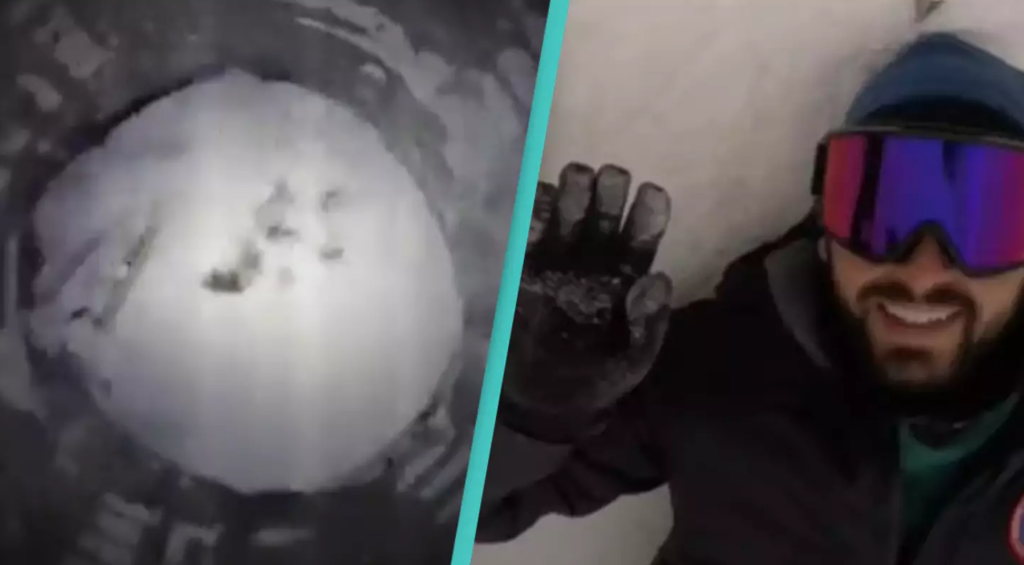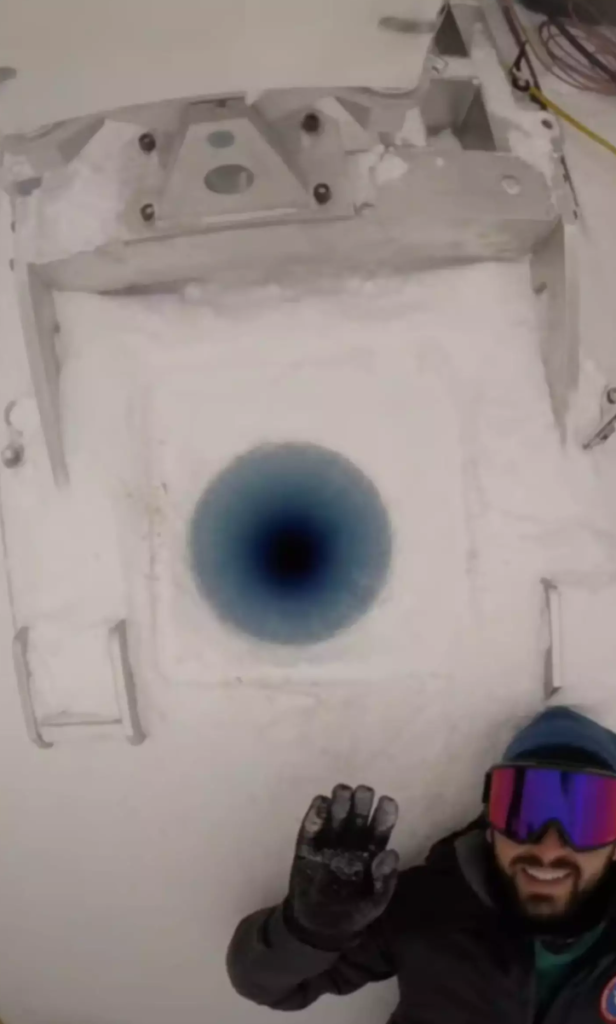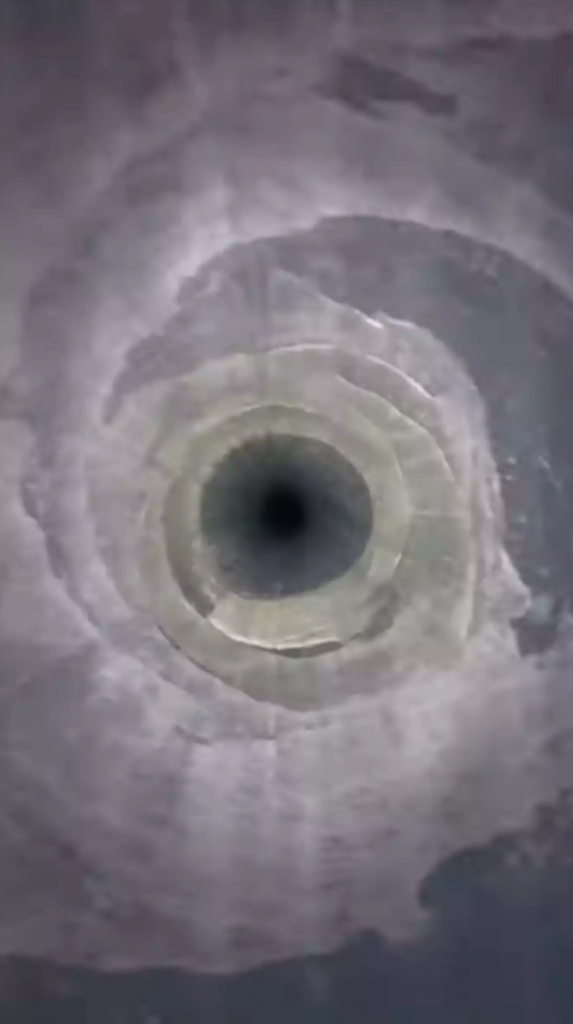
The findings were recorded in a popular TikTok video.
Just when we believe we've learned all there is to know about our planet, something unexpected appears.
Despite our ongoing efforts to explore outer space, there is still a great deal about our own planet, Earth, that remains unknown.
Recently, a fascinating event occurred when a camera fell into a hole 305 feet below Antarctica and made an amazing discovery.
Ice sheets that have existed for an unknown period of time can provide insights into geological history.
Some ice melts and then freezes again every year, but there are large sheets of ice that are extremely thick and have remained frozen for hundreds of years.
They have a lot of frozen information as a consequence.
A popular TikTok video has revealed some new information, and the findings are quite fascinating.

Austin Carter wowed social media users with the short video. (Storyful)
In 2022, a researcher collaborated with COLDEX to investigate Antarctic ice sheets. The video starts with an action camera being lowered into a deep bore hole used by COLDEX to collect ice samples.
The camera was released 93 meters down, providing us with an unexpectedly mesmerizing icy adventure.
The video is truly incredible. It begins with Carter waving goodbye to the camera from ground level, and then it quickly zooms down a small hole.
Things quickly become distorted in the vertical icy tunnel, almost appearing surreal.
It resembles rushing through a very tight tunnel on a train or riding a bobsled, and many have been impressed by it.

The clip provided a unique insight. (Storyful)
A lot of people have now gathered in the comments of the TikTok video to share their opinions.
One person mentioned that it was quite frightening, while another inquired about the purpose of studying old ice despite showing respect.
COLDEX and other research groups can gain valuable insights into our past by analyzing the ice found in these deep locations, especially in relation to historical climate patterns.
Extracting samples from various depths can provide insights into past trends of temperature changes.













